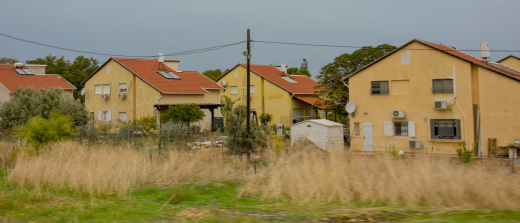
Background
On 24 March 2016, the UN Human Rights Council (HRC) adopted resolution 31/36 requesting the Office of the High Commissioner for Human Rights (OHCHR) to “produce a database of all business enterprises” that “directly and indirectly, enabled, facilitated and profited from the construction and growth of the settlements” in the Occupied Palestinian Territory (hereafter “the UN database”), in consultation with the Working Group on Business and Human Rights. The resolution further specified that the data is to be transmitted to the HRC at its 34th session, and the UN database to be updated annually.
After three years since the adoption of resolution 31/36 and more than two years of its initial scheduled release at the 34thHRC session, the OHCHR is yet to release the UN database. The repeated, open-ended and unexplained delays in releasing the UN database make us question whether the High Commissioner will fulfil her mandate at all. At this point, the release of the UN database has become a matter of ensuring the impartiality and credibility of the High Commissioner, the OHCHR, and the HRC. If the High Commissioner is unable to implement and fulfil an entrusted mandate, then an explanation must be provided to the HRC.
Why Are We Calling for a UN database?
The release and annual update of the UN database are significant for several reasons, including:
- The UN database will identify businesses that violate international humanitarian and human rights law as a result of their operations and relationships with illegal Israeli settlements in the occupied West Bank. Such transparency is necessary for States, businesses and the public, and could assist in ensuring that companies are not complicit or involved in gross human rights violations.
- The UN database will highlight the adverse impacts of Israeli settlements and associated businesses on the rights of Palestinians, notably the right to self-determination and permanent sovereignty over natural resources, including land and water.
- The UN database will serve as a universal tool of transparency for business enterprises that are involved in and profiting from political instability, armed conflict and the exploitation of vulnerable communities and populations around the world.
What Has been Done so Far?
Palestinian and international civil society have been actively working on multiple levels to advocate for the release of the UN database. We have appealed to parliamentarians, Ministries of Foreign Affairs, and policymakers across the world. We have sent numerous public individual and joint letters urging the UN High Commissioner to release and annually update the UN database.
How Can You Contribute Towards the Release of the UN Database?
We believe that collective work and solidarity are key to ensure effective realisation of human rights globally. We encourage more civil society organizations, human rights defenders, social movements, networks and groups from around the world to join our call for the release of the UN database. To this date, more than 100 Palestinian, regional and international human rights organizations and civil society have joined our repeated calls to the UN High Commissioner and Member States. Consider taking the following actions to advocate for the release & annual update of the UN database:
- Reach out and advocate for the release of the UN database before national Parliaments and parliamentarians. Click to access sample letter.
- Engage with your national Ministry of Foreign Affairs on the UN database.
Click to access sample letter. - Send a letter to the UN High Commissioner calling for the release and annual update of the UN database. Click to access sample letter.
- Issue a public statement calling on the High Commissioner’s Office to release the UN database. Click to access sample text.
- Utilize local, regional media and social media (Twitter and Facebook) to raise awareness about the UN database. Click for sample Tweets & hashtags.
For more information, see:
- OHCHR, Database Pursuant Human Rights Council Resolution 31/36.
- Statement on the implications of the Guiding Principles on Business and Human Rights in the context of Israeli settlements in the Occupied Palestinian Territory
- Joint Statement: Continued Delay of the UN Database by the UN High Commissioner for Human Rights, Unfounded and Unacceptable
- More than 100 Organisations Call for the Release of the UN Database of Businesses Engaged in Activities with Israeli Settlements
- Palestinian Civil Society Calls on the UN High Commissioner to Release the UN Database of Businesses Engaged in Activities Related to Israeli Settlements.
- 100 Palestinian, Regional and International Organisations Call on High Commissioner for Human Rights to Publish the UN Database on Business Enterprises with Activities Related to Israeli Settlements in the OPT
- Palestinian Organisations Support Release of UN Database Report and Call for Third State Action to End Corporate Complicity in Occupation
- Joint NGO Statement in Support of the UN Human Rights Database on Business Activities related to Settlements in the Occupied Palestinian Territory
- Unprecedented database to list business enterprises that have, directly and indirectly, enabled, facilitated and profited from the construction and growth of Israeli settlements

